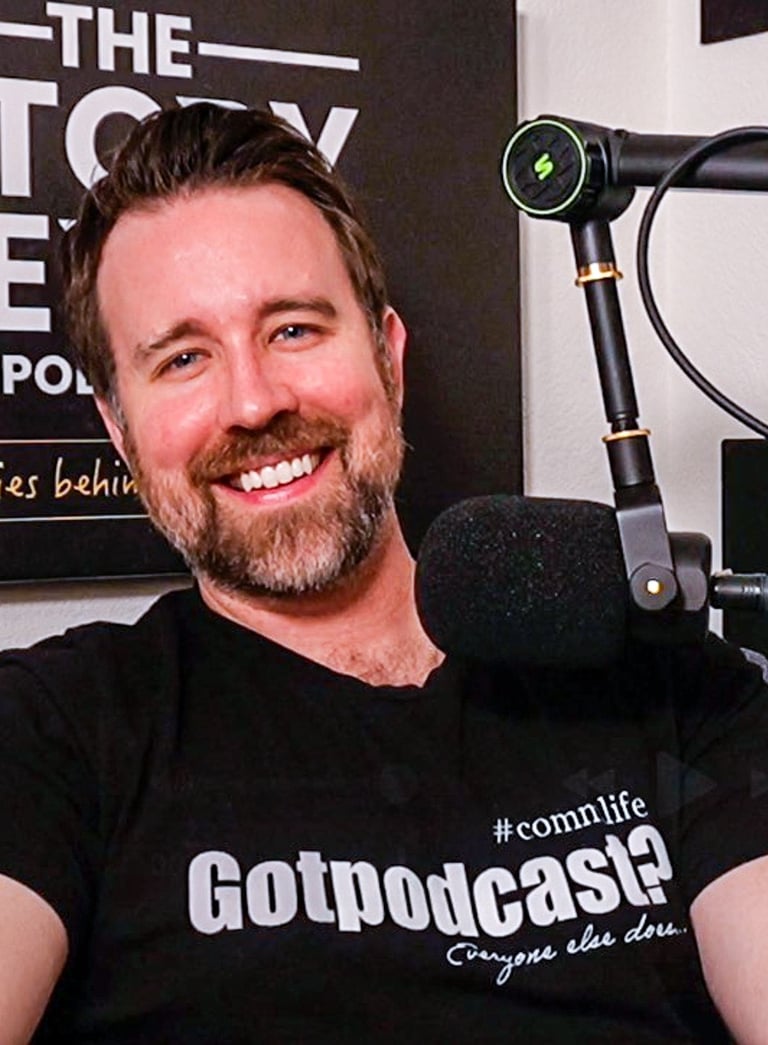
PIOs - Staying In Neutral Can Drive Success
5 Ways to Keep Your Communications Office Out of Political Crossfire
POLITICAL OPINIONGOVERNMENT COMMUNICATIONS
Thomas Y. Lynch
9/28/20255 min read


One of the first pieces of advice I received from a mentor early in my career. “As a PIO you have a duty to be anti-political.” The good old days of ethics and tradition, at its core it is solid advice. In today’s climate, we all struggle with keeping integrity and truth within our operations. It is easy to get caught up in toxic discord, but as Communicators we simply can’t.
Look, I get it. We're living in times where everything feels political—from coffee cups to road construction projects. As a Public Information Officer for a government agency, we’re walking a tightrope every single day. One wrong word, one poorly timed post, and suddenly you're the main character on social media (and not in a good way).
But here's the thing: your job isn't to pick sides. It's to serve everyone.
Let me share five practical ways to keep your office above the political fray while still doing meaningful work for your community.
1. It Starts at the Top: Leadership Sets the Tone
Your leadership team needs to understand something critical: toxic political discourse is organizational quicksand. Once you step in it, you're stuck, and the more you struggle, the deeper you sink.
When leaders start using loaded language, taking partisan jabs, or echoing talking points from one side of the aisle, they're not just expressing opinions—they're alienating half your community. And guess what? Those people still pay taxes. They still deserve services. They still matter. Have honest conversations with your leadership about the real costs of political posturing:
Loss of public trust
Decreased community engagement
Potential legal challenges
Internal staff division
Media scrutiny that distracts from your actual mission
The best leaders understand that neutrality isn't weakness—it's strategic strength. It allows you to work with everyone, serve everyone, and actually get things done.
2. Monitor ALL the News (Yes, Even the Weird Stuff)
Here's where a lot of PIOs drop the ball: they only read the mainstream outlets they're comfortable with. Big mistake. Our media landscape has expanded, yes the media has shifted to “click bait” monetization and facts are an antiquated thing of the past.To truly understand the information landscape your community lives in, you need to “cast a wide net”:
Traditional newspapers and TV news
National cable networks (all of them even FOX News)
Local talk radio
Popular podcasts (even the ones that make you cringe)
Social media platforms and trending topics
Community Facebook groups
Nextdoor conversations
Reddit threads about your area’s government.
Why? Because you can't address concerns you don't know exist. That fringe cringe podcast with 50,000 local listeners might be spreading misinformation about your department. That Facebook group might be organizing opposition to your initiative. You need to know what's being said so you can respond appropriately—or know when to stay silent.
Pro Tip: Deploy reconnaissance measures
Sign-up for Google alerts. Subscribe to newsletters across the spectrum. Dedicate time each week to understanding the full media ecosystem. It's not about agreeing with everything you read—it's about knowing the terrain.
3. Build Your Battle Plan: Strategy and SOPs for Hot Topics
You know what's worse than facing backlash? Facing it without a plan. Every government office needs a crisis communication strategy and standard operating procedures for controversial topics. Start with these core points of empahsis:
Create decision trees:
What topics require leadership approval before responding?
Who speaks on behalf of the organization?
What's our timeline for responses?
When do we engage vs. when do we stay silent?
Develop message frameworks:
Core talking points that align with your mission
Bridging statements to redirect political questions
Fact-based responses that avoid opinion
Templates for common scenarios
When the storm hits—and it will—you'll be glad you built the shelter beforehand.
4. Audit Your Initiatives: What Looks Political?
Here's an uncomfortable truth: sometimes your well-intentioned programs get caught in political crossfire through no fault of your own.
Take a hard look at your organization's policies and initiatives. Which ones could be perceived as political? Common examples:
Environmental programs (the “WOKE” agenda?)
Equity and inclusion efforts (DEI?)
Public health campaigns (vaccines?)
Community development projects (selective contractors?)
Educational initiatives (CRT?)
Now, here's the key: you don't abandon good work just because it might be controversial. Instead, you message it in a way that connects to your core mission and serves your entire community.
For example:
Don't talk about climate change—talk about cost savings and infrastructure resilience
Don't lead with social justice—lead with economic opportunity and community safety
Don't emphasize political buzzwords—emphasize practical outcomes and community benefits
Promote everything in your organization's established mission and values. When critics come calling, you can point to your strategic plan, your board-approved priorities, and your legal mandates. You're not being political—you're doing your job.
5. Keep Your Opinions to Yourself (Seriously)
Even in this post I made an error in judgment, the post was neutral until I made a very opinionated reference. Yes I struggle with this in my personal writing, but not on the job -stay the course! I know this isn't sexy. I know it's frustrating when you have strong feelings about issues. I know you see your friends posting hot takes and getting likes and engagement.
But here's the deal: your credibility depends on your neutrality.
When you're the voice of a government agency, people need to trust that you're giving them straight information, not filtered through your personal politics. That trust is hard to build and easy to destroy.
Some practical guidelines:
Keep your personal social media separate and private
Avoid political bumper stickers on your car
Skip the partisan rallies and protests
Don't sign political petitions using your work title
Resist the urge to "like" or share political content
Yes, you have First Amendment rights. But you also have a professional responsibility to serve everyone in your community. In a world where everyone has a platform and an opinion, your superpower is sticking to facts, policy, and purpose. It's not glamorous. But it works.
Pro Tip: When Elected Officials Want to Pull You Off Course
Let's talk about the elephant in the room: many government organizations have elected officials with strong political opinions and agendas.That's their job. They were elected to represent a particular viewpoint from their constituents.But here's what's not their job: pulling your organization away from its mission and values. Your job is predicated on rules, standards, and policy. When an elected official wants you to communicate something that conflicts with your organization's vision, you might need to be brave. Just remind them of the organization's established vision and mission.
Yes, this can be uncomfortable. Yes, it might create tension. But going against your organization's core principles isn't what you signed up for when you took the job. Stick to principles. Advocate for the common good. Let elected officials be political—that's their role. Your role is to ensure the organization serves everyone, regardless of who's in office or what's trending on Twitter.
The Wrap:
Staying neutral in politically charged times isn't easy. It requires discipline, strategy, and sometimes courage. But it's absolutely essential if you want your government office to maintain credibility and effectively serve your entire community.
Remember: you're not here to win political arguments. You're here to serve the public. Every resident, regardless of their political beliefs, deserves accurate information, quality services, and respectful communication from their government. That's the standard. That's the job. Stay focused. Stay neutral. Stay professional. And when things get heated (and they will), take a deep breath and remember why you got into public service in the first place—to make your community better for everyone.
Thomas Y. Lynch
“How well we communicate is not determined by how well we say things but how well we are understood.”


















